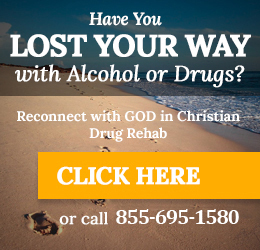Abstinence-Based Treatment for Addiction
This is the most well known and most studied and documented type of drug treatment program. The goal of treatment is to achieve complete abstinence from drugs and alcohol. This is based on decades of evidence that most people, once their alcohol and drug use has escalated to abuse and dependence, can never safely drink alcohol or use drugs in a social setting.
Abstinence is one of the guiding principles of 12-step programs such as Alcoholics Anonymous, Narcotics Anonymous, and rated programs.
Abstinence is first achieved through a medically monitored detoxification process which may involve short-term use of drugs to ameliorate withdrawal symptoms. For example, Suboxone may be used for withdrawal from opiate pain killers such as Vicodin or OxyContin. However, abstinence-based drug treatment programs will wean the patient from the replacement medication usually within 5-7 days.
Some people object to the idea of abstinence saying it is unrealistic. There is some evidence that people in the early stages of abuse may be able to learn how to drink moderately; however, once full-blown dependency and abuse is present, most people do not find themselves able to use in moderation.
Harm Reduction Treatment Programs
Harm reduction drug treatment programs believe that if you can’t get someone to accept total abstinence, you can at least take steps to minimize the danger. The basic goal is to meet people “where they’re at.” Harm reduction advocates do not have anything against abstinence (and in fact would like that outcome if possible), but they understand the complex issues facing many addicts and tries to empower them to make their drug use safer.
Harm reduction is quite controversial, especially among 12-step program advocates who believe abstinence is the only way. However, harm reduction advocates never minimize the risks of drug use – they simply address the realities of life in American, particular as it relates to poverty, class, racism, social isolation, and social inequalities.
It is difficult to argue with harm reduction when you consider how few people have access to specialized addiction treatment programs, and little is done to reach people who are poor or live in underserved communities.
The continued myths and misconceptions around addiction have meant poor funding of treatment and inequitable insurance coverage.
Methadone is the most common form of harm reduction treatment. You take the person off the street and stop them from using heroin that comes from unknown sources and you give them a controlled essentially “substitute” heroin that has fewer side effects. By putting heroin addicts on heroin you also reduce their risk of contracting HIV through shared needles and you keep them out of the dangerous environments where heroin is found.
The most recent version of harm reduction is Suboxone, used to help people stop taking opiates.
Harm reduction may be as simple as making sure injection drug addicts get clean needles, or special kits that they can use if they sense they are overdosing.
LEARN MORE ABOUT HARM REDUCTION THERAPY
Replacement Therapy
Replacement therapy is essentially a form of harm reduction. A drug such as methadone, Suboxone, or naltrexone is used to facilitate detox, and then continued as a maintenance program. Many of the newer drugs are harder to abuse than methadone and are therefore considered safer. The biggest objection to replacement therapy is that you do not give the person an opportunity to be completely drug free – they are just substituting something for the original drug. The opiate agonists also do serve another purpose: they make it hard to get high on actual opiate drugs. However, is this real sobriety or is it sort of like Antabuse-controlled alcohol recovery?
12-Step Based Treatment
Drug treatment programs that base their philosophy on the effectiveness of the twelve steps of Alcoholics Anonymous do not just teach the 12 steps. They offer traditional individual and group therapy and other modalities to help clients develop skills for recovery. These might include DBT (dialectical behavioral therapy), CBT (cognitive behavioral therapy), motivational interviewing, neurofeedback (EEG Biofeedback), guided meditation, yoga, fitness programs, and additional therapies and services.
12-Step drug treatment programs have a strong belief that attending AA or other 12-step programs, getting a sponsor, and doing the steps give their clients the best chance of success after leaving the safety of the rehab environment.
These programs will usually introduce participants to the 12 steps, have in-house meetings, and take clients to meetings within the community. Some rehabs will encourage clients to do their first and second steps while in treatment. Most 12-step programs are abstinence based, although some (such as Sex Addicts Anonymous and Overeaters Anonymous) help participants learn to manage these behaviors since sex and eating are basic drives.
Narconon
Narconon is a program developed by the Church of Scientology. It is a controversial program, mainly because they do not make it obvious on their websites that it is affiliated with Scientology. They have been criticized for claiming things that are not scientifically verifiable, such as the idea that you can sweat out the drugs in your body in a sauna. Your body, when deprived of a drug it has been conditioned to use, will go through detoxification when you stop using it. A sauna just makes you sweat. Drugs are metabolized by the liver and excreted by the kidneys, not by the sweat glands. For some people, a detox where you go “cold turkey” can be incredibly damaging to the brain, especially to memory and executive functioning.
SPEAK WITH AN ELEMENTS BEHAVIORAL HEALTH RECOVERY ADVISOR IMMEDIATELY:
855-763-6488
We Can Help You Navigate Your Addiction Recovery Options



